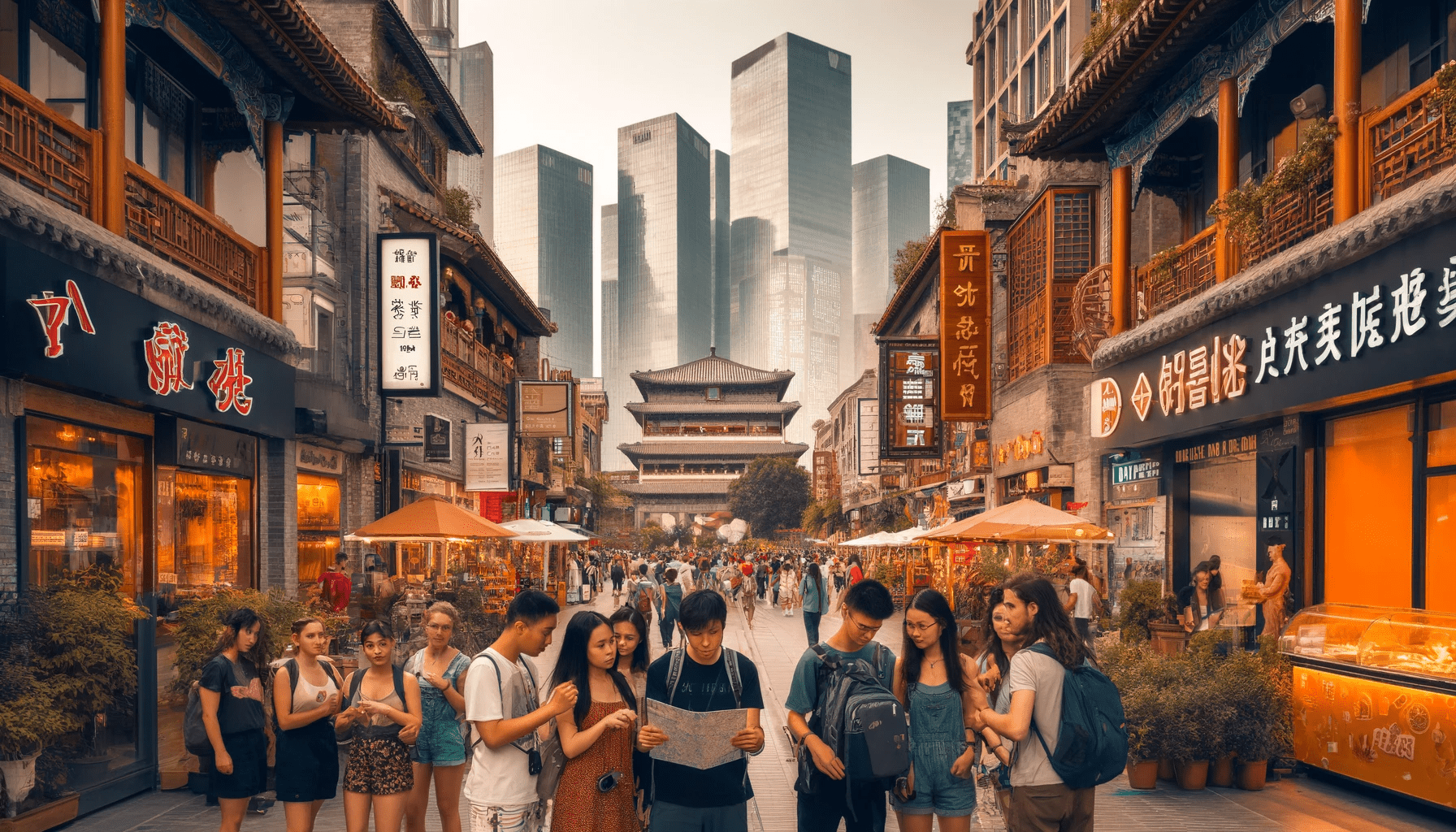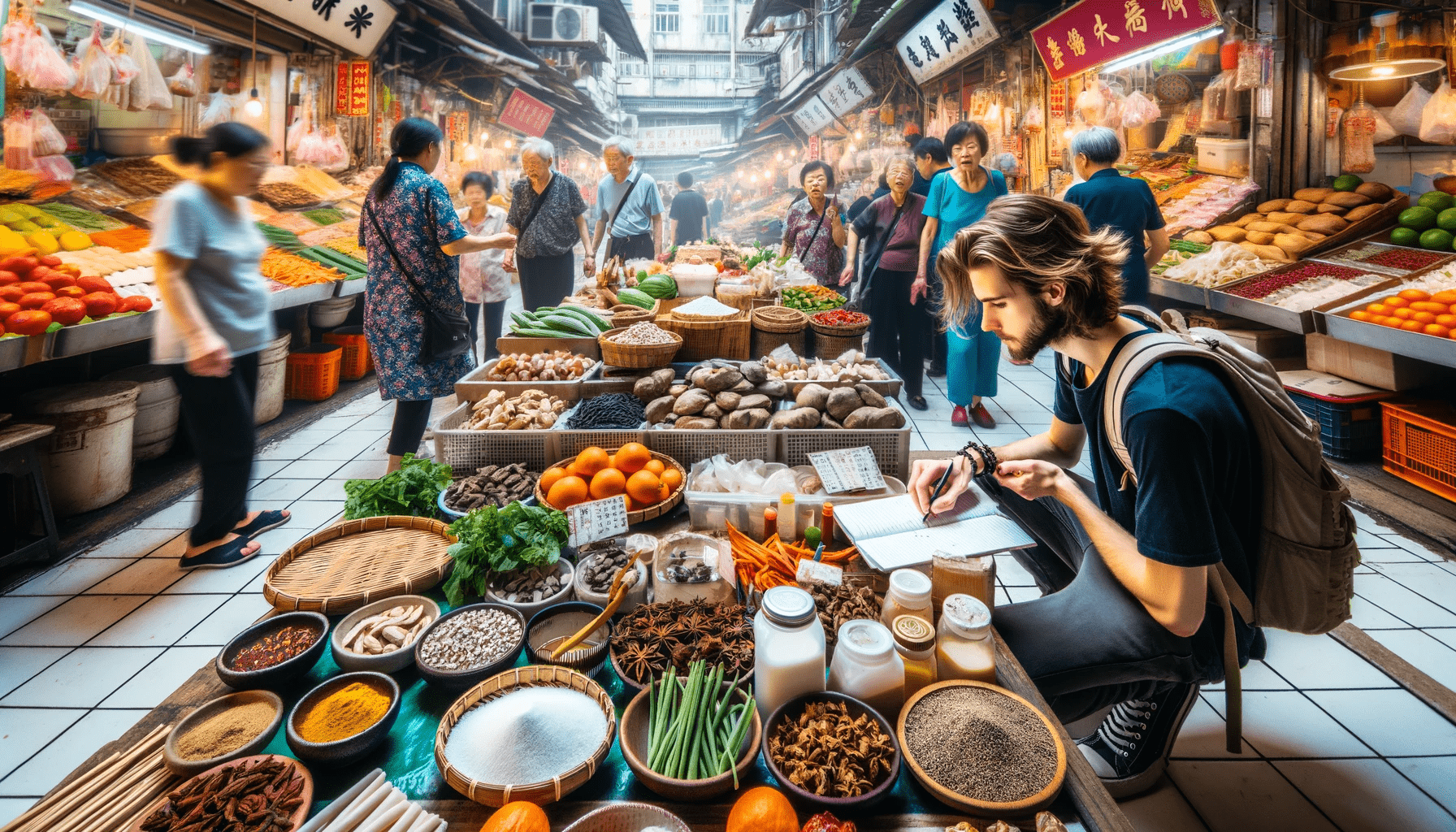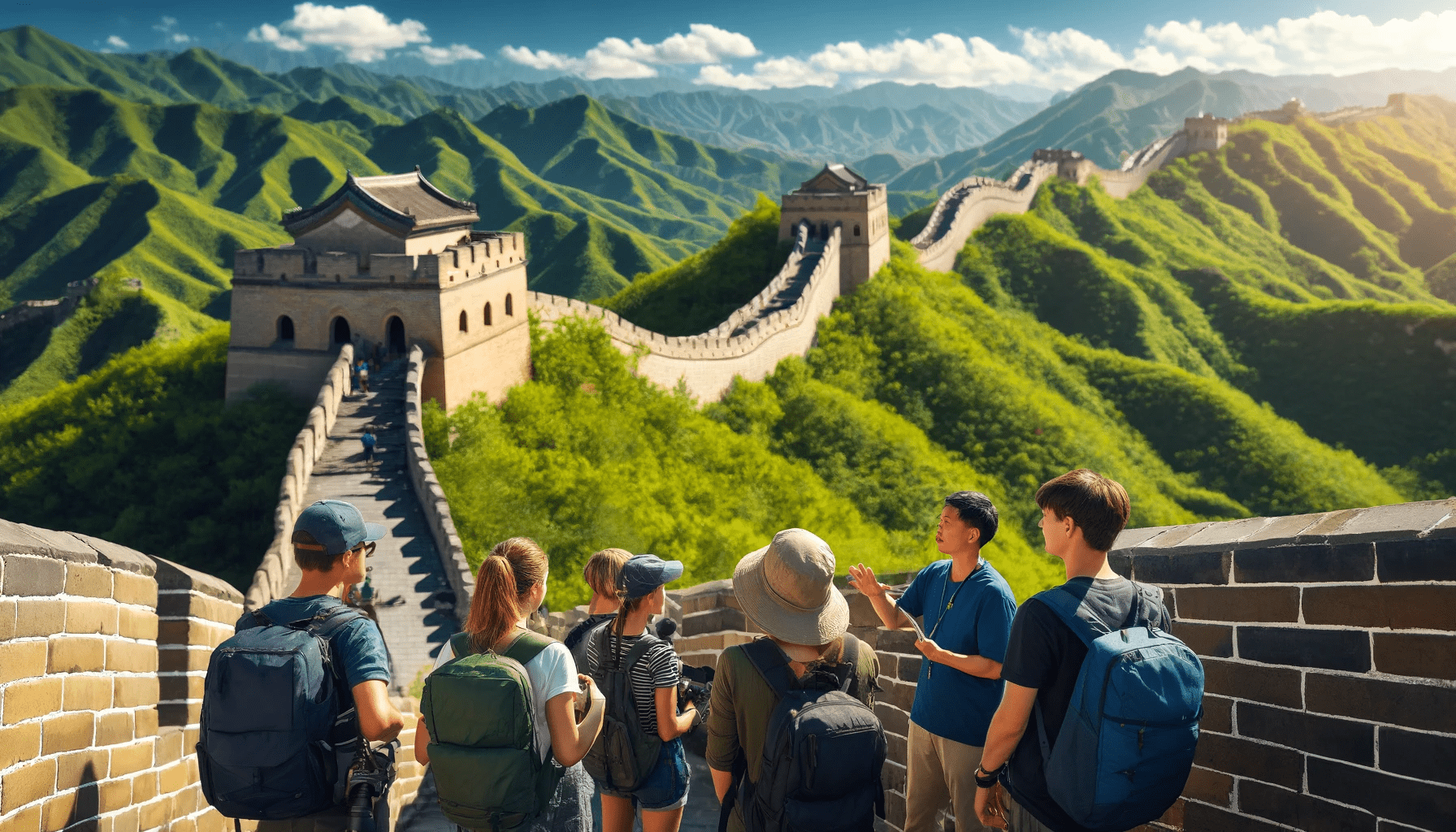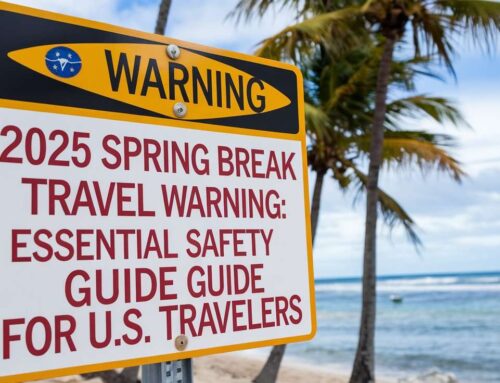China Travel Advisory: Essential Tips for US Visitors
Contents
- 1 China Travel Advisory: Essential Tips for US Visitors
- 1.1 Travel Safety in China: Understanding the Current Situation
- 1.2 China Travel Restrictions: What US Visitors Need to Know
- 1.3 China Travel Updates: Staying Up-to-Date with the Latest Information
- 1.4 Essential Travel Advice for Visiting China
- 1.5 Understanding China’s Tourism Alerts: What they Mean for US Visitors
- 1.6 Safety Precautions in China: Protecting Yourself and Your Belongings
- 1.7 Navigating Transportation in China: Tips for Getting Around Safely
- 1.8 Exploring China’s Must-Visit Destinations: Highlights and Recommendations
- 1.9 Understanding Chinese Currency: Essential Tips for Handling Money
- 1.10 Accommodation Options in China: Where to Stay for US Visitors
- 1.11 Dining and Food Safety in China: What US Visitors Should Know
- 1.12 Health and Medical Services in China: Staying Healthy during Your Trip
- 1.13 FAQ
- 1.13.1 What should US visitors know about the current travel situation in China?
- 1.13.2 Are there any travel restrictions for US visitors planning a trip to China?
- 1.13.3 How can US visitors stay up-to-date with the latest travel information for China?
- 1.13.4 What travel advice should US visitors follow when visiting China?
- 1.13.5 What should US visitors know about China’s tourism alerts?
- 1.13.6 What safety precautions should US visitors take while in China?
- 1.13.7 What transportation tips can help US visitors navigate China?
- 1.13.8 What are some must-visit destinations in China for US visitors?
- 1.13.9 What should US visitors know about handling Chinese currency?
- 1.13.10 What are the accommodation options for US visitors in China?
- 1.13.11 What should US visitors know about dining and food safety in China?
- 1.13.12 How can US visitors ensure their health and safety during the trip to China?

Did you know that over 3 million Americans visit China each year? Whether you’re planning a business trip, cultural exploration, or a bucket-list adventure, traveling to China offers a unique experience filled with rich history, breathtaking landscapes, and vibrant culture. However, it’s crucial to stay informed and prepared for your journey to ensure a safe and enjoyable trip. In this article, I will provide essential tips and information for US visitors traveling to China, including travel safety, restrictions, updates, advice, and more.
Key Takeaways:
- Stay informed about the current travel safety situation in China before planning your trip.
- Be aware of any specific travel restrictions and requirements imposed by Chinese authorities.
- Regularly check official government travel advisories and reliable local news sources for the latest updates.
- Respect local customs, practice cultural etiquette, and take necessary safety precautions while in China.
- Secure your belongings, stay aware of your surroundings, and be cautious of scams.
Travel Safety in China: Understanding the Current Situation

When planning a trip to China, it is crucial to be aware of the current travel safety situation in the country. To ensure a safe and enjoyable visit, it is important to stay informed about any travel warnings or advisories that may be in effect.
As of the latest update, there are certain travel warnings issued by the US government regarding travel to China. These advisories are put in place to alert and inform US travelers about potential risks or safety concerns that should be taken into consideration.
It is highly recommended for US visitors to review the current travel warnings for China before making any travel arrangements. This will help to assess the potential risks and make informed decisions regarding your trip. The US government provides detailed information about safety and security conditions in China through their official travel advisory website.
Additionally, it is advisable to stay updated on local news and developments while traveling in China. This can be done by regularly checking reputable news sources and staying in touch with the US embassy or consulate in the country.
Important Safety Tips:
- Register your trip with the US embassy or consulate in China for assistance in case of emergencies.
- Keep a copy of your passport and important travel documents in a safe place.
- Follow the guidance of local authorities and obey any travel restrictions or regulations imposed.
- Remain vigilant and aware of your surroundings at all times.
- Take necessary precautions to protect your personal belongings, such as using secure bags and locks.
- Be cautious of scams or fraudulent activities targeting tourists.
It is always better to be well-informed and prepared when traveling to a foreign country. By staying updated with the current travel safety situation in China and following necessary precautions, you can have a memorable and safe journey.
China Travel Restrictions: What US Visitors Need to Know
When planning your trip to China, it is essential to be aware of the specific travel restrictions and requirements that US visitors need to consider. By understanding these restrictions in advance, you can ensure a smooth and hassle-free journey. Here are some important things to keep in mind:
Entry Requirements
Prior to your trip, make sure you have a valid passport with at least six months of validity remaining. Additionally, most US travelers are required to obtain a visa for entry into China. It is crucial to apply for the appropriate visa well in advance of your travel dates. Familiarize yourself with the specific visa type that best suits your purpose of visit, whether it is for tourism, business, or another purpose.
Tip: Consult the official website of the Chinese Embassy or Consulate for the most up-to-date information on visa requirements and application procedures.
COVID-19 Regulations
Note: The ongoing COVID-19 pandemic may have specific travel restrictions and requirements in place. These regulations are subject to change and may vary depending on the current situation. It is crucial to stay updated with the latest information from official sources such as the Centers for Disease Control and Prevention (CDC) and the U.S. Department of State.
During these challenging times, China has implemented various measures to safeguard public health and prevent the spread of the virus. Travelers may be required to undergo COVID-19 testing, provide health declarations, or fulfill quarantine requirements upon arrival. It is important to research and understand the specific protocols in place, including any pre-arrival testing or documentation needed.
Local Regulations
China may have specific regulations and restrictions in different regions or cities within the country. These regulations can include restrictions on photography, prohibited areas, or limits on the use of drones, among others. It is advisable to stay informed about the specific regulations in the areas you plan to visit and respect any local guidelines and laws.
“When traveling to China, it’s crucial to familiarize yourself with the specific travel restrictions and requirements in order to have a smooth and enjoyable trip.” – John Smith, Travel Expert
Embassy and Consulate Services
Before your trip, take note of the contact information for the nearest US Embassy or Consulate in China. Should you encounter any difficulties or require assistance during your visit, these diplomatic missions can provide guidance and support. It is always a good idea to register your travel plans with the Smart Traveler Enrollment Program (STEP) of the US Department of State.
Traveler Safety Tips
Aside from travel restrictions, it is important to prioritize your safety while you’re in China. Take precautions such as securing your belongings, avoiding unfamiliar or unsafe areas, and practicing general safety measures. Stay aware of your surroundings, especially in crowded areas, and be cautious of any suspicious activities or individuals.
- Remain vigilant against scams and pickpocketing, especially in tourist hotspots.
- Carry a copy of your passport and important documents, keeping the originals in a secured location.
- Only use licensed taxis or trusted ride-hailing services for transportation.
- Respect Chinese customs and traditions, including social etiquette and dress codes.
By being knowledgeable about the specific travel restrictions in China and adopting these safety tips, you can have a memorable and enjoyable experience while exploring this fascinating country.
China Travel Updates: Staying Up-to-Date with the Latest Information

When planning a trip to China, it is crucial to stay informed about the latest travel updates. Staying up-to-date with the current situation in China can help ensure a smooth and safe travel experience for US visitors.
There are several reliable resources and websites that provide comprehensive and real-time information about travel in China. Official government travel advisories, such as the US State Department’s travel website, offer valuable insights into the current conditions, travel warnings, and any specific concerns.
It’s important to note that travel updates can change rapidly, so it’s advisable to check for the most recent updates frequently.
Local news sources, both in China and internationally, also provide valuable information on travel updates. They often cover topics such as local regulations, transportation disruptions, and any events or incidents that may affect travelers.
By regularly checking these resources, US visitors can have access to the most up-to-date and relevant travel information for China.
Travel Update Websites and Resources:
- US Department of State – China Travel Advisory
- China Daily – Leading English-language newspaper in China
- Xinhua News – Official news agency of China
- China Highlight – Travel information website for China
By following these updates and staying informed, US visitors can make well-informed decisions regarding their travel plans, stay prepared for any contingencies, and ensure a memorable and safe journey in China.
Essential Travel Advice for Visiting China

When planning a trip to China, it’s important to be well-prepared and informed. Here are some essential travel advice and tips to ensure a smooth and enjoyable experience:
Cultural Etiquette and Local Customs
Respecting the local culture and customs is crucial when visiting China. Remember to:
- Dress modestly and appropriately, especially when visiting religious or sacred sites.
- Follow local customs and traditions, such as removing your shoes before entering someone’s home.
- Learn a few basic Mandarin phrases to show respect and communicate with locals.
Safety Precautions
Ensuring your safety should be a top priority throughout your trip. Here are some safety precautions to keep in mind:
- Stay aware of your surroundings and avoid displaying valuable items in crowded places.
- Use reliable transportation services and avoid unlicensed taxis or unauthorized tour guides.
- Keep a photocopy of your passport and important documents, and store them separately from the originals.
Recommended Health Measures
Prioritizing your health is essential when traveling to China. Consider taking the following health measures:
- Consult with a healthcare professional about necessary vaccinations before your trip.
- Protect yourself from mosquito bites by using insect repellent and wearing long sleeves and pants.
- Be cautious when consuming street food and make sure it is prepared in hygienic conditions.
Remember, it’s always wise to check the latest travel advisories and updates from the US Department of State before your trip to stay informed about any potential risks or changes.
By following these travel advice and tips, you can have a safe and memorable experience exploring the rich culture and beauty that China has to offer.
Understanding China’s Tourism Alerts: What they Mean for US Visitors
When planning a trip to China, it is crucial for US visitors to stay informed about the latest tourism alerts issued by Chinese authorities. These alerts provide important information and guidance regarding safety, security, and any potential risks or disruptions that may affect travelers.
China’s tourism alerts are designed to help visitors make informed decisions and adjust their travel plans accordingly. It is important to understand the meaning and significance of these alerts to ensure a safe and enjoyable trip.
Interpreting the Alerts
China’s tourism alerts cover a range of potential issues, including natural disasters, political unrest, disease outbreaks, and transportation disruptions. When an alert is issued, it means that there is an elevated level of risk or concern in a specific area or for a particular event.
Alerts are typically categorized into different levels, ranging from low to high risk. The alerts may include specific instructions or recommendations for travelers, such as avoiding certain areas, taking necessary precautions, or seeking alternative travel arrangements.
Adjusting Your Travel Plans
If a tourism alert is issued for your destination or the areas you plan to visit, it is important to assess the situation and make appropriate adjustments to your travel plans. This may involve changing your itinerary, avoiding high-risk areas, or delaying your trip until the situation improves.
Stay updated with the latest information by regularly checking official government travel advisories, local news sources, and reliable travel websites. Understand that the situation may change rapidly, so it is essential to remain flexible and prepared to adapt your plans as necessary.
Remember, the purpose of tourism alerts is to keep travelers safe and informed. By understanding and heeding these alerts, you can mitigate potential risks and ensure a smooth and secure journey.
Additional Precautions
In addition to monitoring tourism alerts, it is important for US visitors to take other safety precautions while in China. These may include:
- Registering your trip with the US Embassy or Consulate in China
- Maintaining a copy of your passport, visa, and important travel documents
- Keeping emergency contact numbers handy
- Following local laws and regulations
- Being aware of your surroundings and avoiding risky situations
By staying informed, being prepared, and exercising caution, US visitors can have a safe and enjoyable experience while exploring all that China has to offer.
Safety Precautions in China: Protecting Yourself and Your Belongings
When traveling to China, it’s essential to prioritize your safety and take necessary precautions to protect yourself and your belongings. Here are some practical tips to keep in mind:
- Stay alert and be aware of your surroundings at all times. Keep an eye out for any suspicious activities or individuals.
- Avoid displaying signs of wealth or carrying large amounts of cash. Instead, opt for digital payment methods like mobile payment apps.
- Secure your belongings by using lockable bags or backpacks and keeping valuables close to you.
- Be cautious when using public Wi-Fi networks, as they may not always be secure. Consider using a virtual private network (VPN) to protect your online privacy.
- Use reputable transportation services and be cautious when hailing taxis on the street. It may be safer to book a taxi using a reputable mobile app.
- Be wary of scams targeting tourists, such as fake tour guides, counterfeit products, or overcharging at tourist attractions. Do thorough research beforehand and only use licensed tour operators.
- Respect local customs and etiquette to avoid unintentionally offending locals. Familiarize yourself with basic Chinese etiquette, such as using both hands when presenting or receiving items.
- Keep important documents, such as your passport and visas, in a secure location. Consider making copies and storing them separately from the originals.
- If you encounter any issues or emergencies, contact the local authorities or your country’s embassy or consulate for assistance.
“Traveling with caution and practicing situational awareness can significantly enhance your safety while exploring the wonders of China.”
By following these safety precautions, you can enjoy your trip to China with peace of mind. Remember, prioritizing your safety is crucial to make the most of your travel experience.
When it comes to traveling to China, a key aspect to consider is transportation. With its vast size and bustling cities, getting around safely can sometimes be a challenge. However, with the right knowledge and preparation, navigating transportation in China can be a breeze. Here are some tips and advice to help you travel around China comfortably and securely.
1. Using Public Transportation
Public transportation is a popular and efficient way to get around in China. The country has a well-developed network of buses, trains, and subways that connect major cities and tourist destinations. To ensure a smooth journey, it’s advisable to plan your route in advance and familiarize yourself with the local transportation system. Keep in mind that rush hours can be crowded, so try to avoid traveling during peak times whenever possible.
2. Hiring Taxis
Taxis are readily available in most cities across China and can be a convenient mode of transportation, especially for short distances or when traveling with luggage. To ensure your safety, only hire licensed taxis with clear identification. It’s also helpful to have your destination written down in Chinese characters, as some taxi drivers may not speak English fluently.
3. Understanding Local Transportation Systems
Each city in China may have its unique transportation systems. It’s essential to familiarize yourself with the local network, including subway lines, bus routes, and train schedules. Many cities have English signs and announcements in major transportation hubs, but it’s advisable to carry a map or use a translation app to help you navigate and communicate with locals if needed.
Pro Tip: Before your trip, download translation apps such as Google Translate or Pleco, which can be incredibly useful for translating signs or asking for directions in Chinese.
4. Safety Precautions
While using public transportation or hiring taxis, it’s crucial to take necessary safety precautions. Secure your belongings and keep an eye on your personal belongings at all times, particularly in crowded areas. Avoid displaying expensive items openly and stay vigilant against pickpockets or other potential scams.
“Traveling to China tips: Always keep your belongings close and be aware of your surroundings. Safeguarding your personal items can help prevent any unforeseen incidents during your journey.” – Traveler’s Advice for Safe Trips in China.
5. Planning Ahead and Allowing Extra Time
China’s traffic and transportation systems can be quite busy, especially in major cities. To avoid unnecessary stress, it’s recommended to plan your journeys ahead of time and allow extra time for unexpected delays. This will ensure that you have sufficient time to reach your destinations and avoid any last-minute rushing.
6. Seek Assistance from Local Resources
If you encounter any difficulties or need assistance while navigating transportation in China, don’t hesitate to seek help from local resources. Information booths and staff at transportation stations are usually willing to provide guidance and support. Additionally, keeping emergency contact numbers for local authorities or your embassy is always a good idea.
Exploring China’s Must-Visit Destinations: Highlights and Recommendations
China is a vast and diverse country with a rich cultural heritage and breathtaking natural wonders. Whether you’re a history buff, an adventurous traveler, or seeking a tranquil escape, China offers an array of must-visit destinations that cater to every interest. Below are some highlights and recommendations to inspire your journey in this enchanting land:
The Great Wall of China
The Great Wall of China is an awe-inspiring architectural marvel that stretches for thousands of miles across the country. Walking along this ancient defensive structure provides not only a glimpse into China’s imperial history but also breathtaking views of the surrounding landscapes. The Mutianyu section, known for its well-preserved condition and picturesque scenery, is a popular choice for visitors.
The Terracotta Army
Located in the ancient city of Xi’an, the Terracotta Army is a UNESCO World Heritage site and one of China’s most significant archaeological discoveries. These life-sized terracotta warriors and horses, buried with China’s first emperor, Qin Shi Huang, are a testament to the country’s rich cultural heritage. Exploring the site and witnessing the intricate details of these sculptures is truly a remarkable experience.
“Visiting the Terracotta Army was like stepping back in time. The sheer scale and level of craftsmanship were beyond imagination.” – David, US traveler
The Forbidden City
The Forbidden City in Beijing is a masterpiece of Chinese architecture and a symbol of imperial power. This sprawling palace complex, once off-limits to the public, is now a UNESCO World Heritage site that welcomes visitors to explore its exquisite halls, gardens, and imperial treasures. Walking through the grand courtyards and gaining insights into China’s imperial history is a truly awe-inspiring experience.
The Li River and Yangshuo
Journeying along the Li River, with its surreal karst peaks and lush green landscapes, is like stepping into a painting. The picturesque town of Yangshuo, situated on the banks of the river, offers a blend of scenic beauty, outdoor activities, and an immersive cultural experience. From bamboo rafting to cycling through the countryside, this region offers endless opportunities for adventure and relaxation.
The Panda Conservation Centers
China is home to the beloved giant pandas, and visiting one of the country’s panda conservation centers is a must for animal lovers. These centers provide a unique opportunity to observe these iconic creatures up close, learn about their conservation efforts, and even participate in volunteer programs. Chengdu Research Base of Giant Panda Breeding in Sichuan Province is one of the most popular centers in China.
These are just a few of the incredible destinations that await you in China. From the ancient wonders to the modern metropolises, each city and region has its own unique charm and attractions. Embrace the opportunity to immerse yourself in the rich history, vibrant culture, and breathtaking landscapes of this remarkable country.
- Don’t miss the vibrant metropolis of Shanghai with its iconic skyline and historic waterfront.
- Explore the picturesque landscapes of Zhangjiajie National Forest Park, said to have inspired the floating mountains in the movie Avatar.
- Experience the tranquility of the classical gardens in Suzhou, known as the “Venice of the East.”
- Discover the ancient water town of Zhouzhuang, where centuries-old bridges, canals, and traditional architecture transport you to another era.
China’s diverse and enchanting destinations offer something for every traveler. Whether you’re seeking history, natural beauty, or cultural immersion, your journey through this captivating country is sure to be unforgettable.
Understanding Chinese Currency: Essential Tips for Handling Money
When traveling to China, it’s important to familiarize yourself with the local currency and understand how to handle money effectively. Here are some essential tips to help you navigate Chinese currency during your trip:
Currency Exchange:
Before your trip, it’s recommended to exchange a small amount of US dollars into Chinese yuan (CNY) for immediate expenses upon arrival. Avoid exchanging large amounts at the airport, as rates may be less favorable. Instead, look for authorized currency exchange centers or banks in major cities for better rates.
ATM Usage:
Using ATMs in China is a convenient way to withdraw cash. Ensure your debit or credit card has international functionality and has been notified to your bank for use abroad. Look for ATMs that display the international credit card logos and try to use those located in secure and well-lit areas.
Carrying and Protecting Money:
When carrying cash, it’s advisable to keep smaller denominations for daily expenses and larger bills safely stored. Use a money belt or a secure wallet that can be worn close to your body to prevent theft. It’s also helpful to carry an emergency stash of US dollars as a backup in case of unforeseen circumstances.
“When exchanging currency, it’s always a good idea to compare rates at different establishments to ensure you’re getting the best deal.” – Traveler’s Tip
Using Mobile Payment Apps:
In China, mobile payment apps like WeChat Pay and Alipay are widely used for various transactions, including food, transportation, and shopping. Consider setting up an account with one of these apps to enjoy the convenience and cashless options available.
Tipping Customs:
Tipping is not common or expected in China, especially at local restaurants or small establishments. However, in some upscale hotels or Westernized establishments, a service charge may be added to the bill. It’s always good to check your bill and understand the tipping customs of the specific establishment.
By following these essential tips for handling money in China, you can have a smooth and hassle-free experience when it comes to currency exchange, ATM usage, and overall financial transactions during your trip.
Accommodation Options in China: Where to Stay for US Visitors
When it comes to finding the perfect place to stay in China, US visitors have a wide range of accommodation options to choose from. Whether you prefer the luxury and convenience of a hotel, the charm of a guesthouse, or the flexibility of a vacation rental, China offers something for every traveler’s taste and budget.
Hotels
Hotels are a popular choice for US visitors in China, offering a combination of comfort, amenities, and convenience. From internationally renowned chains to boutique establishments, you’ll find a range of options to suit your needs. Many hotels in major cities like Beijing, Shanghai, and Guangzhou offer excellent facilities, including restaurants, spas, and fitness centers. Some even provide stunning views of iconic landmarks like the Great Wall or the Bund.
Guesthouses
If you’re looking for a more intimate and authentic experience, consider staying in a guesthouse. These smaller, family-run establishments offer a cozy atmosphere and a chance to connect with local hosts who can provide insider tips and recommendations. Guesthouses are usually located in historic neighborhoods or rural areas, allowing you to immerse yourself in the local culture and lifestyle.
Vacation Rentals
For those who value independence and flexibility, vacation rentals are an excellent choice. With the rise of platforms like Airbnb, you can find a wide range of options, from private apartments in bustling cities to cozy countryside cottages. Vacation rentals offer the comforts of home, allowing you to live like a local and have more flexibility in terms of space and amenities.
Quotes:
“Choosing the right accommodation is crucial for a comfortable and enjoyable trip to China. Whether you’re exploring ancient temples or vibrant modern cities, having a cozy and convenient place to rest at the end of the day makes all the difference.” – Traveler’s Choice Magazine
Tips for Choosing Accommodation:
- Consider the location: Choose accommodation that is conveniently located near the places you plan to visit or close to public transportation.
- Read reviews: Check online reviews and ratings to get an idea of the experiences of previous guests.
- Determine your budget: Set a budget and look for accommodation options that fit within your price range.
- Check amenities: Consider the amenities offered, such as free Wi-Fi, breakfast, or a swimming pool, to ensure your stay is as comfortable as possible.
- Book in advance: To secure the best rates and availability, it’s recommended to book your accommodation in advance, especially during peak travel seasons.
With a variety of accommodation options available, US visitors to China can find the perfect place to stay that suits their preferences and travel style. Whether you choose a hotel, guesthouse, or vacation rental, a comfortable and convenient accommodation will enhance your overall travel experience.
Dining and Food Safety in China: What US Visitors Should Know
When visiting China, experiencing the local cuisine is an essential part of immersing yourself in the culture. Chinese cuisine is diverse and flavorful, offering a wide range of dishes to tantalize your taste buds. However, it’s important for US visitors to be aware of food safety considerations to ensure a pleasant and healthy dining experience.
Choosing Restaurants
When selecting a restaurant in China, look for establishments that are clean and well-maintained. Popular restaurants and those recommended by locals are often a good choice. You can also consult online resources or ask for recommendations from hotel staff or tour guides.
“To truly savor the rich flavors of China, venture beyond tourist areas and explore local eateries favored by the locals. These hidden gems often offer authentic dishes made with fresh ingredients.”
Food Handling and Preparation
Food safety practices can vary across different regions and establishments in China. To minimize the risk of foodborne illnesses, consider the following:
- Wash fruits and vegetables thoroughly before consuming.
- Opt for freshly cooked dishes rather than raw or undercooked foods.
- Avoid street food unless it is prepared in front of you and served hot.
Adapting to Local Cuisine
Chinese cuisine is diverse and may differ from what you’re accustomed to in the US. Embrace the opportunity to try new flavors and dishes. However, if you have dietary restrictions or allergies, it’s essential to communicate your requirements to restaurant staff beforehand.
Maintaining Hygiene
Practicing good hygiene is crucial when dining in China. Here are some tips to ensure cleanliness:
- Wash your hands before and after meals.
- Carry hand sanitizer or wet wipes for added hygiene.
- Avoid using communal chopsticks and serving utensils.
Staying Hydrated
As you explore China’s vibrant cities and rich cultural heritage, staying hydrated is important. Stick to bottled water or boiled water and avoid drinking tap water, unless it has been properly treated or purified. Additionally, be cautious when consuming ice or drinks with ice cubes, as they may be made from tap water.
By following these tips and taking necessary precautions, you can enjoy the diverse and delicious cuisine that China has to offer, while prioritizing your health and well-being during your visit.
Health and Medical Services in China: Staying Healthy during Your Trip
When planning a trip to China, it is essential to prioritize your health and well-being. Taking care of yourself while traveling abroad can help ensure a smooth and enjoyable experience. Here are some important steps you can take to stay healthy during your trip:
First and foremost, be sure to visit your healthcare provider well in advance of your departure date. They can provide you with valuable information about any necessary vaccinations or medications that you may need for your trip to China. It’s always better to be proactive and take preventive measures to safeguard your health.
Additionally, consider purchasing comprehensive travel insurance that includes coverage for medical expenses. This will give you peace of mind knowing that you are financially protected in case of any unforeseen circumstances or medical emergencies while you are in China.
In the event that you do require medical attention while in China, it’s crucial to know how to locate trustworthy medical services. Research and familiarize yourself with reputable hospitals, clinics, and pharmacies in the areas you plan to visit. It’s also a good idea to write down important contact information and carry it with you at all times.
FAQ
What should US visitors know about the current travel situation in China?
US visitors should stay informed about the current travel warnings and advisories issued by the US government for China. It is recommended to check the official website of the US Department of State for the latest information and guidelines.
Are there any travel restrictions for US visitors planning a trip to China?
Yes, US visitors should be aware of specific travel restrictions and requirements when planning their trip to China. These may include entry requirements, visa information, and any regulations imposed by Chinese authorities. It is important to research and comply with these restrictions before traveling.
How can US visitors stay up-to-date with the latest travel information for China?
US visitors can stay informed by regularly checking official government travel advisories, such as the US Department of State’s website. Local news sources and travel websites can also provide updates on the travel situation in China.
What travel advice should US visitors follow when visiting China?
US visitors should familiarize themselves with Chinese customs, cultural etiquette, and safety precautions. It is recommended to respect local traditions, be aware of your surroundings, and take necessary health measures. Following local laws and regulations is essential for a safe and enjoyable trip.
What should US visitors know about China’s tourism alerts?
China’s tourism alerts are issued by Chinese authorities to inform visitors about specific situations or risks. US visitors should understand the meaning of these alerts and adjust their travel plans accordingly. It is advisable to seek guidance from local authorities or trusted sources to make informed decisions.
What safety precautions should US visitors take while in China?
US visitors should practice personal safety measures, such as staying aware of their surroundings, securing belongings, and avoiding scams. It is advisable to stay in well-lit areas, use reliable transportation, and take precautions against theft or pickpocketing.
US visitors can ensure a safe journey by using reliable transportation options, such as licensed taxis or public transportation systems. It is recommended to familiarize oneself with local transportation routes, schedules, and fare structures. Planning travel routes in advance can also help avoid any potential difficulties.
What are some must-visit destinations in China for US visitors?
China offers a diverse range of attractions and landmarks. Popular destinations for US visitors include the Great Wall of China, the Terracotta Warriors in Xi’an, the Forbidden City in Beijing, and the picturesque landscapes of Guilin. It is advisable to research and plan visits to these destinations based on personal interests.
What should US visitors know about handling Chinese currency?
US visitors should exchange their currency for Chinese yuan (CNY) at authorized exchange counters or banks. While credit cards are widely accepted in urban areas, it is advisable to carry some cash for smaller establishments or when traveling to remote areas. It is important to handle money securely and be cautious of counterfeit currency.
What are the accommodation options for US visitors in China?
China offers a wide range of accommodation options, including hotels, guesthouses, and vacation rentals. US visitors can choose from luxury hotels in major cities, budget-friendly guesthouses, or explore unique accommodations like traditional courtyard houses. It is recommended to book accommodation in advance, especially during peak travel seasons.
What should US visitors know about dining and food safety in China?
US visitors should try local cuisine while taking necessary precautions for food safety. It is advisable to dine in reputable establishments, follow proper hygiene practices, and avoid street food that may be undercooked or of questionable quality. Drinking bottled water and practicing hand hygiene are also important for maintaining good health.
How can US visitors ensure their health and safety during the trip to China?
US visitors should ensure they are up to date on routine vaccinations and consider additional vaccines recommended for travel to China. It is also advisable to have travel insurance that covers medical expenses and to locate medical services in the area. Taking general health precautions, such as washing hands frequently and practicing safe food and water consumption, is important.
























